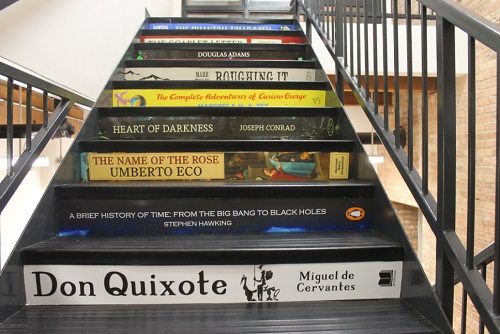
June 10, 2015; ChicagoInno
According to the Chicago Literacy Alliance (CLA), about 53 percent of adults in the city have low or limited literacy levels. And, as in most major U.S. cities, Chicago’s public schools are strapped for cash—to the tune of a $1.1 billion budget deficit, which means some students are not getting as much help as they need with literacy skills. It’s no surprise that nonprofits have been working hard to address these literacy issues, or that new nonprofits have been popping up in Chicago’s literacy community.
It was a surprise, however, when a roomful of CLA members discovered—almost by chance—that as many as 19 literacy organizations were working with a single school, each without knowing the others were there. Despite all that help—or perhaps because of it—literacy rates at the school were still dropping. From that discovery of well-intentioned but poorly coordinated efforts came the inspiration for Literacenter, a 22,000-square-foot coworking space for literacy nonprofits, which officially opened last week in Chicago’s West Loop neighborhood.
As reported on ChicagoInno, Literacenter “combines the collaborative nature of tech coworking spaces with the solution-oriented mission of nonprofits.” According to the Literacenter website, its members “run the spectrum from early childhood service organizations through agencies specializing in adult education, but have two key things in common: missions focusing on literacy and the desire to collaborate for the cause.” As with tech and entrepreneurial coworking spaces, Literacenter offers different levels of membership, with dedicated spaces for resident members and flexible workspace and access to conference rooms for members with lower-tier benefits. All members benefit from below-market rental rates, which are possible because of foundation and corporate underwriting support for the project.
Sign up for our free newsletters
Subscribe to NPQ's newsletters to have our top stories delivered directly to your inbox.
By signing up, you agree to our privacy policy and terms of use, and to receive messages from NPQ and our partners.
Literacenter opened with a total of 32 members, ten of which are resident nonprofits. The second-story space includes 14 conference rooms and is large enough to warrant a small fleet of scooters that visitors can borrow to get from one end to the other. A separate article in ChicagoInno highlights the Literacenter’s whimsical design elements, including a staircase that looks like a stack of books, punny classroom names like “Roomeo and Juliet” and scooter names like “F. Scoot Fitzgerald,” plus a basement-level “Lit Lounge,” complete with a foosball table and a piano, where members can mingle and where fresh ideas for advancing literacy can be hatched.
Co-founder and creative director Stacy Ratner, who had experience in a coworking space in Philadelphia before relocating to Chicago, also operates Open Books, a nonprofit bookstore that offers literacy programs, on the first floor of the Literacenter building. She says, “We are not only in the business of incubating and accelerating onwards. We are also in the business of supporting stability, supporting reasonable growth. That, we think, is a totally legitimate business aim. Not every nonprofit needs to become a national behemoth nonprofit.”
Although members only began moving into the space in May, there are already signs of collaboration. For example, new office neighbors Infiniteach and Tutoring Chicago are working on ways to share autism education resources.
Is coworking a wave of the future for nonprofits? In Philadelphia, the Asian Arts Initiative anchors a multi-tenant arts facility, which “offers opportunities for creating and viewing art and exchanging ideas and dialogue among individual artists, arts organizations, local neighborhood residents and the greater Philadelphia community.” While the focus is not as tight as with the Literacenter, the recent move of Philadelphia Young Playwrights into the facility, along with a space occupied by the city’s Mural Arts Program, has created critical mass in the building around the concept of social practice in the arts.
NPQ would welcome other examples of nonprofit coworking spaces. Tell us what’s working, or describe a work-in-progress, in your community. —Eileen Cunniffe











